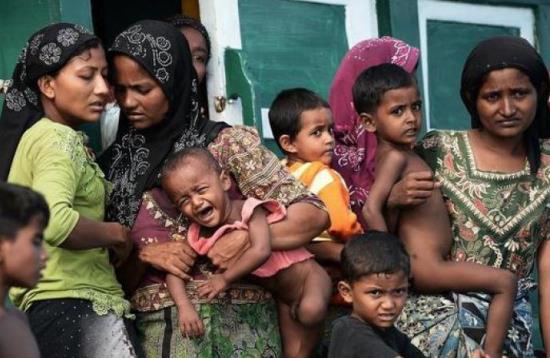5 July 2024: A recent report by the United Nations Committee on the Elimination of Racial Discrimination (CERD) has called on India to address and end racial discrimination against the Rohingya community within its borders. This directive comes amidst growing international concerns over the treatment of the Rohingya, a predominantly Muslim ethnic group originally from Myanmar, who have faced severe persecution and violence in their homeland.
The Rohingya crisis escalated in August 2017 when a military crackdown in Myanmar’s Rakhine State led to widespread atrocities, including mass killings and sexual violence. This brutal campaign forced over 700,000 Rohingya to flee to neighboring countries, including Bangladesh and India. While Bangladesh has borne the brunt of the refugee influx, a significant number of Rohingya have sought refuge in India, seeking safety and stability.
The CERD has expressed serious concerns regarding the treatment of Rohingya refugees in India. The committee’s latest report highlights several areas where India is falling short of its obligations under international human rights laws, particularly the International Convention on the Elimination of All Forms of Racial Discrimination, to which India is a signatory.
- Detention and Deportation: The report points out instances where Rohingya refugees have been detained and deported back to Myanmar, where they face imminent danger. Such actions violate the principle of non-refoulement, which prohibits the return of refugees to a country where they face serious threats to their life or freedom.
- Living Conditions: The UN body has raised concerns about the living conditions of Rohingya refugees in India. Many are residing in overcrowded camps with inadequate access to basic services such as clean water, sanitation, and healthcare. These conditions have been exacerbated by the COVID-19 pandemic, leaving the Rohingya highly vulnerable.
- Legal Status and Rights: A significant issue highlighted is the lack of legal recognition and protection for Rohingya refugees. Without proper documentation and refugee status, the Rohingya in India are left in a precarious situation, unable to access education, employment, or social services, and constantly fearing arrest and deportation.
Recommendations
To address these issues, the CERD has made several recommendations to the Indian government:
- End Detention and Deportation: India must immediately halt the detention and deportation of Rohingya refugees and uphold the principle of non-refoulement.
- Improve Living Conditions: The government should take urgent steps to improve the living conditions in refugee camps and ensure access to essential services.
- Legal Protection: India should provide legal recognition and protection to Rohingya refugees, allowing them access to education, healthcare, and employment opportunities.
- Anti-Discrimination Measures: Implement comprehensive anti-discrimination measures to ensure the Rohingya are treated with dignity and respect, and protected from racial and religious discrimination.
The call from the UN body underscores the pressing need for India to address the plight of the Rohingya refugees within its borders. As a major regional power and a signatory to various international human rights treaties, India has a responsibility to protect vulnerable populations and uphold the principles of human rights and dignity. Ending racial discrimination and providing adequate protection and support to the Rohingya refugees will not only enhance India’s international standing but also reaffirm its commitment to humanitarian values.




